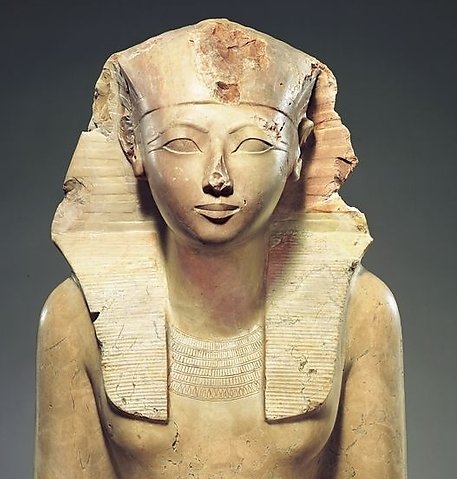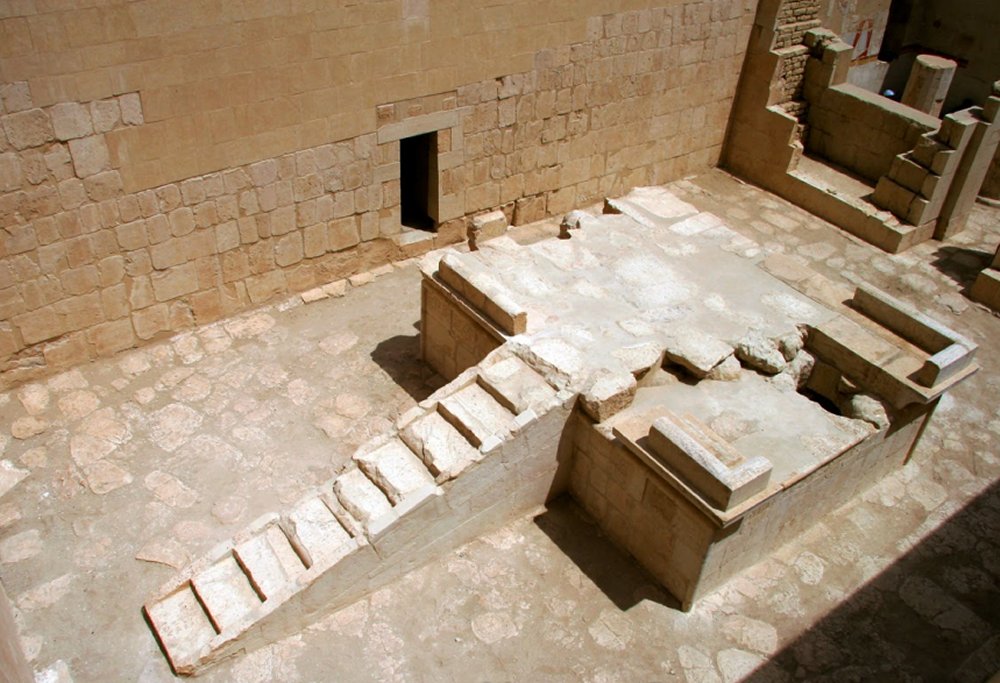MessageToEagle.com – The Solar Cult Complex in the temple of Hatshepsut in Deir el-Bahari, reconstructed by a Polish Centre of Mediterranean Archaeology, University of Warsaw mission, was opened to visitors on the 22th of February, 2015.

The funerary temple of Queen Hatshepsut, one of the few women pharaohs, who ruled Upper Egypt, was built in 15th century BC.
See also:
Pharaoh Hatshepsut: Skillful And Efficient Female Ruler Who Brought Prosperity To Ancient Egypt
Why Was Pharaoh Hatshepsut’s Reign Virtually Erased From History?
10 Reconstructions Of Ancient Cities, Monuments And Sacred Sites
Before Hatshepsut: Early Egyptian Queen Revealed In Hieroglyphs
Situated at the foot of a towering rocky slope in which it is partly hewn, it consists of three terraces connected by ramps leading to vast porticoes,’ according to source.

The Polish mission was entrusted with the reconstruction of the Upper Terrace of the temple back in the 1960s; since then, the painstaking work by generations of archaeologists, restorers and architects led to the rebuilding of the Terrace, including the Solar Cult Complex.
In the course of this work, the surviving walls of the temple had been preserved and their beautiful relief decoration was restored to its previous splendor.
From the rubble covering the temple tens of thousands stone blocks with fragments of relief decoration had been recovered and patiently recomposed.
This allowed researchers to fathom the message of the religious program of Queen Hatshepsut.
The achievements of the Polish scholars include reconstructing the appearance of the Solar Cult Complex, determining the function of the separate rooms and the sequence in which they were built.
Suggestions as to the reconstruction of the central feature of the Complex, the Solar Altar in the middle of an open-air courtyard, include an offering table flanked by two obelisks.
The work in this part of the temple of Hatshepsut resulted in its complete reconstruction which will now be made available to tourists.
Source. Restoration Work
MessageToEagle.com







